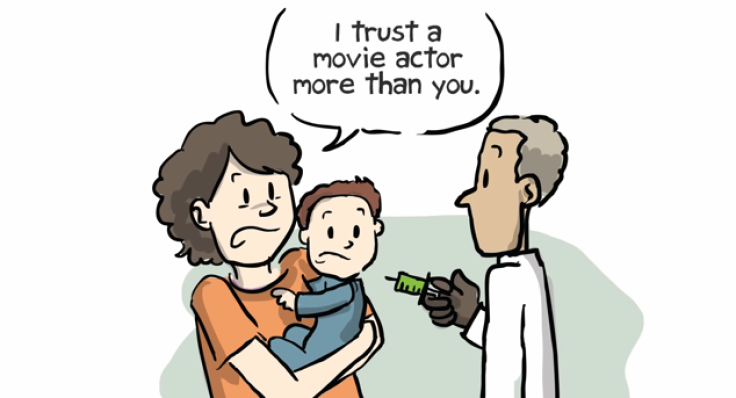Autism And Vaccines: Why The Vaccine Schedule Makes Everyone Healthier, Once And For All

Advocates of the “vaccines cause autism” debate argue there is an increase in the number of childhood vaccines on schedule over the recent years, which coincides with the increase in autism prevalence, they say. Although some vaccinations can cause side effects such as soreness and fever, autism is a neurobehavioral disorder that occurs within a wide range of symptoms, and its rise has to do more with changing the diagnostic criteria for the disorder than other factors. Now, parents ambivalent toward the debate may ask themselves: Why should my kids get vaccinated and follow a vaccine schedule? To help answer the question, Piled Higher and Deeper (PhD Comics), an online comic strip on life in academia, weighs both sides of the argument in one of their videos.
“Millions of kids each year get immunized to protect against disease. Diseases like smallpox and polio now affect far fewer people because of widespread vaccination," said Producer Meg Rosenburg in the PhD Comics video. Abiding to a vaccine schedule is crucial for children at a young age because their immune systems are not yet fully mature, and their stomach produces less acid, which makes it easier for consumed bacteria and viruses to rapidly multiple. Vaccines only pose a small challenge to a child’s immune system compared to the environmental challenges they face every day prior to immunization.
Although a 1998 paper originally published in The Lancet proposed a link between autism and the vaccination for measles, mumps, and rubella, there have been over a dozen studies that failed to find any connection between autism and vaccines. The 1998 study was retracted amid allegations of fraud, conflicts of interest, and incorrect elements. Despite recent evidence that the disorder begins during pregnancy, while the brain is still forming, not from vaccinations, celebrities and the media have helped develop a “herd mentality” — detrimental to children’s health.
U.S. states with lower vaccination rates, like California, are currently experiencing outbreaks of measles and epidemic levels of whooping cough. Inactive viruses or bacteria in vaccines help stimulate the body’s B and T immune cells to produce antibodies to fight the disease to create a “herd immunity,” according to the video. Learn more below, and decide what choice feels right to you.



























